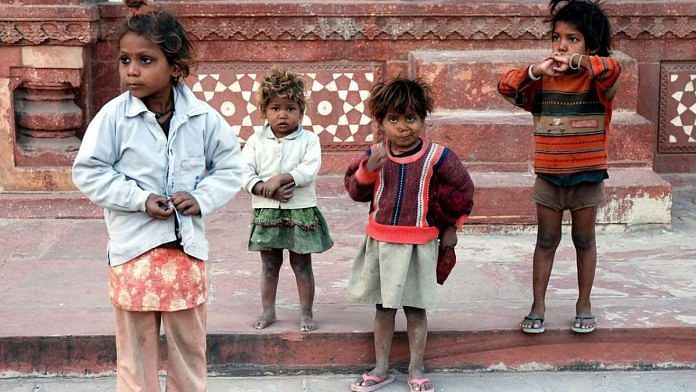The Trafficking of Persons (Prevention, Protection and Rehabilitation) Bill, 2018 includes punishment for aggravated forms of trafficking for forced labour, marriage, childbearing and begging, but neglects trafficking for sexual exploitation and organ trade.
There is also scope for confusion in the proposed legislation in relation to existing laws for children. For instance, the Bill explicitly refers to the Juvenile Justice (Care and Protection of Children) Act, 2015. However, other relevant laws such as the Protection of Children from Sexual Offences (POCSO) Act, 2012 and the Child and Adolescent Labour (Prohibition and Regulation) Act, 1986 are not mentioned. References to these acts is essential to ensure transparent and speedy procedures for child safety and welfare.
A key concern is that while the Bill provides immunity to victims for crimes committed under coercion or threat of death or grievous injury by the trafficker, the immunity extends to only those crimes that are punishable with imprisonment of 10 years or more, or death. As a result, immunity cannot be claimed for petty offences despite being committed under coercion.
Also read: On World Day Against Trafficking in Persons, a look at the numbers in India
What the Bill needs
The title of the proposed bill may use ‘trafficking in persons’ instead of ‘tracking of persons’. While the former phrase refers to all chains of human trafficking, the latter involves only the victims of trafficking and does not reflect the organised syndicate nature of the offence.
The Bill needs to clearly distinguish between ‘hirer’ and ‘recruiter’, because recruiter attracts 10-year punishment and hirer attracts only 3-year punishment, as per the provisions.
Recognition of new forms of trafficking such as ‘post-disaster trafficking’ is required. The Bill also needs to define various forms of child trafficking, such as trafficking for and through adoption and by placement agencies for domestic servitude.
For those rescued, the obsolete methods of confined rehabilitation should be abolished. Rehabilitation must be based on community learning and peer support, instead of confining a person to sewing and cooking training. Adding provisions mentioning rehabilitation of women viz. aged sex worker, having limited avenues to generate livelihood is crucial.
Currently, laws such as Immoral Trafficking Prevention Act (ITPA), Bonded Labour System (Abolition) Act, 1976, the Child Labour Act, and Juvenile Justice Act cover the ambit of trafficking. Indian authorities also use Sections 366(A) and 372 of the Indian Penal Code (IPC) to combat trafficking. Penalties under these provisions are a maximum of 10 years’ imprisonment. The proposed law needs to mention whether it will replace or supersede these existing legislations to avoid confusion and overlap within the law enforcement and judiciary and ensure accountability.
Also read: Why sex workers are opposing a bill that aims to protect them
Trafficking a global menace
Human trafficking anywhere in the world is one of the gravest violations of human rights. In India, people are frequently trafficked for commercial sex, bonded labour, other forms of exploitation. It is a multi-billion-dollar enterprise. Top countries for recruitment include Venezuela, North Korea, Central African Republic, Syria, India, Bangladesh, and Pakistan, among others.
The reasons for trafficking are the same universally. Human labour is required to keep the shiny layer of development intact but since the rich avoid paying minimum wages to legally sourced workers, trafficked and helpless humans are their best deal. Data shows that developed areas attract maximum trafficking to keep up with the demand in affluent countries such as the UAE, the US, and European countries, and from poverty-stricken areas to developed cities within the country. Demand is largely for bonded labour, domestic servitude, begging, drug peddling/smuggling, forced marriage, forced criminality.
The key factors that lead to human trafficking are lack of employment opportunities, religious/traditional prostitution, child marriage, false promises for job/marriage, migration, sex tourism, internet pornography, etc. Poor and developing nations are easy targets to fulfill these demands. It is a system thriving on interlinked political, economic, and social issues such as poverty, lack of awareness, and limited employment opportunities. The traffickers mint money and the desperate keep falling prey in hope of a better future.
The Narendra Modi government’s anti-trafficking Bill was passed by the Lok Sabha in 2018 but lapsed later due to the dissolution of the 16th Lok Sabha.
Also read: India had 38,503 victims of trafficking in 2011-19. Only 77 have got compensation
Recommendations and the way forward to combat this menace
1. Dire need for sensitisation and awareness among the public through media. Encouragement of reporting of such cases. Awareness to make rehabilitation institutions more accessible. Awareness through compulsory education to adolescents.
2. Creation of employment opportunities to discourage migration.
3. Encouraging sharing of best practices for preventive measures against trafficking between nations.
4. Building capacities by training authorities: Impart quality training to government’s anti-trafficking officers and constantly monitor their activities; creation of new anti-trafficking agencies.
5. Mingling of the anti-trafficking Bill with the Disaster Management Act, 2005 to mitigate disaster-induced trafficking.
Ensuring implementation of the above recommendations will take time and patience. However, considering that the Modi government has a clear majority in Parliament and that the Women and Child Development Ministry is fully devoted towards fighting this menace, I am confident that we shall see progress and have the implementation of an effective anti-trafficking legislation soon.
Meenakshi Lekhi is a Member of Parliament, national spokesperson of the Bharatiya Janata Party (BJP) and a Supreme Court lawyer who has been an advocate of women issues since the beginning of her career. Views are personal.



